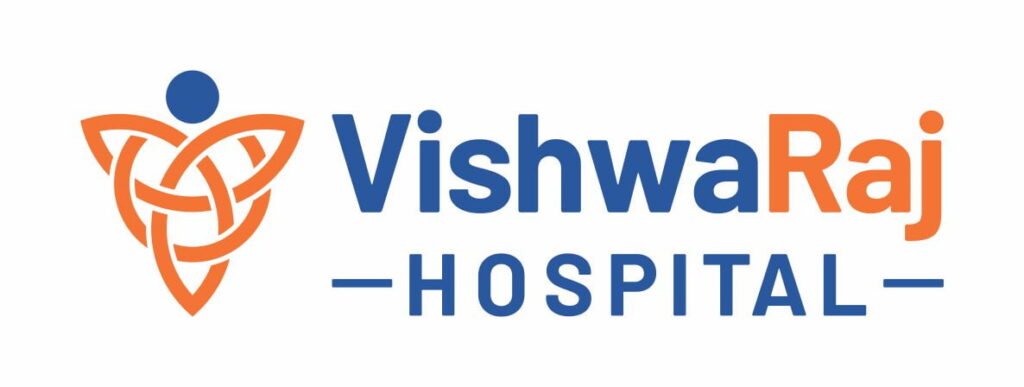Your kidneys work tirelessly, filtering waste, balancing electrolytes, and regulating essential bodily functions. But what happens when they start to fail—without you even realizing it? Chronic Kidney Disease (CKD) is a silent condition that often remains unnoticed until significant damage has already occurred.
By the time symptoms become apparent, kidney function may have already declined significantly. This is why early detection is crucial. The sooner CKD is identified, the better the chances of slowing its progression and preventing complications such as kidney failure.
At VishwaRaj Hospital, we emphasize kidney health awareness, encouraging early diagnosis and intervention. Recognizing the warning signs of CKD can empower individuals to take control of their health before it’s too late.
What is Chronic Kidney Disease (CKD)?
Chronic Kidney Disease is a progressive condition where the kidneys gradually lose their ability to filter waste and excess fluids from the blood. As CKD advances, toxins build up in the body, leading to serious health complications.
The Five Stages of CKD:
CKD is classified into five stages based on kidney function, measured by the glomerular filtration rate (GFR).
- Stage 1 & 2: Mild kidney damage with normal or slightly reduced function.
- Stage 3: Moderate reduction in kidney function, often accompanied by noticeable symptoms.
- Stage 4: Severe decline in function, requiring medical intervention.
- Stage 5 (End-Stage Renal Disease): Complete or near-complete kidney failure, necessitating dialysis or a transplant.
Many people with early-stage CKD are unaware of their condition, making routine check-ups essential for early detection.
Early Warning Signs of Chronic Kidney Disease
CKD often progresses quietly, but some warning signs can indicate trouble ahead.
1. Frequent Urination or Changes in Urination
If you find yourself urinating more often, especially at night, or notice a change in urine color and consistency, it may be a sign that your kidneys are not functioning properly.
2. Swelling in Hands, Feet, or Ankles
Kidneys help regulate fluid balance. When they fail, excess fluid accumulates in the body, causing noticeable swelling, particularly in the lower extremities.
3. Fatigue and Weakness
A decline in kidney function can lead to anemia, reducing oxygen supply to the body. This often results in persistent fatigue, weakness, and difficulty concentrating.
4. Persistent Itching or Skin Rash
When kidneys are unable to remove waste effectively, toxins build up in the bloodstream, causing skin irritation, dryness, and persistent itching.
5. Shortness of Breath
Fluid retention in the lungs, coupled with reduced oxygen levels, can lead to breathing difficulties, even with minimal exertion.
6. High Blood Pressure
Kidneys play a crucial role in blood pressure regulation. Impaired kidney function can contribute to hypertension, which further damages the kidneys, creating a harmful cycle.
7. Blood in Urine
The presence of blood in urine is a serious warning sign. It may indicate kidney damage or an underlying infection that requires immediate medical attention.
Ignoring these warning signs can be dangerous. Seeking medical advice at the first indication of trouble can help prevent irreversible kidney damage.
Risk Factors for Chronic Kidney Disease
Certain individuals are more susceptible to CKD due to genetic, lifestyle, and medical factors.
Major Risk Factors:
- Diabetes – The leading cause of CKD, as high blood sugar levels damage kidney function over time.
- High Blood Pressure – Excessive pressure on blood vessels can lead to kidney deterioration.
- Family History – A genetic predisposition increases the risk of developing CKD.
- Heart Disease – Cardiovascular health and kidney function are closely interconnected.
- Obesity – Excess weight places additional strain on the kidneys.
- Smoking & Excessive Alcohol Use – Both contribute to kidney damage and increased toxicity in the bloodstream.
Even if you do not fall into a high-risk category, regular kidney screenings can help detect problems early.
How to Monitor Your Kidney Health
Keeping track of kidney health can help prevent CKD from advancing undetected.
1. Routine Medical Tests
- Blood Test (Serum Creatinine & GFR): Measures kidney function and filtration rate.
- Urinalysis: Detects protein or blood in urine, early indicators of CKD.
2. Blood Pressure and Blood Sugar Control
Managing hypertension and diabetes can significantly reduce the risk of kidney damage.
3. Staying Hydrated
Drinking enough water daily helps flush toxins and supports optimal kidney function.
4. Maintaining a Balanced Diet
Reducing sodium, processed foods, and excessive protein intake can ease the strain on the kidneys.
When to See a Doctor: Importance of Early Diagnosis
Do not wait for severe symptoms to appear before seeking medical help. If you experience persistent fatigue, swelling, or changes in urination, consulting a doctor is essential.
At VishwaRaj Hospital, our nephrology specialists use advanced diagnostic tools to assess kidney function and develop personalized treatment plans. Early diagnosis can significantly improve outcomes and slow disease progression.
If you have any concerns about your kidney health, schedule a consultation today
Prevention and Management of Chronic Kidney Disease
Although CKD cannot always be cured, preventive measures and early management can help slow its progression.
Preventive Strategies:
- Follow a Kidney-Friendly Diet: Reduce sodium, potassium, and phosphorus intake.
- Maintain a Healthy Weight: Regular exercise and a balanced diet lower the risk of CKD.
- Quit Smoking & Limit Alcohol Consumption: Both habits accelerate kidney deterioration.
- Stay Hydrated: Proper hydration supports kidney function and waste elimination.
- Manage Chronic Conditions: Keeping diabetes and hypertension under control is crucial for kidney health.
Medical Management for CKD:
- Medications: Blood pressure and diabetes medications may be prescribed to protect kidney function.
- Dialysis or Transplant: In advanced cases, dialysis or a kidney transplant may be necessary.
Making small, consistent changes today can help protect kidney function and improve long-term health.
Your kidneys are vital to your overall health—don’t wait for symptoms to worsen. Schedule a kidney health check-up today at Vishwaraj Hospital to take proactive steps toward better well-being.
Reference Links:



